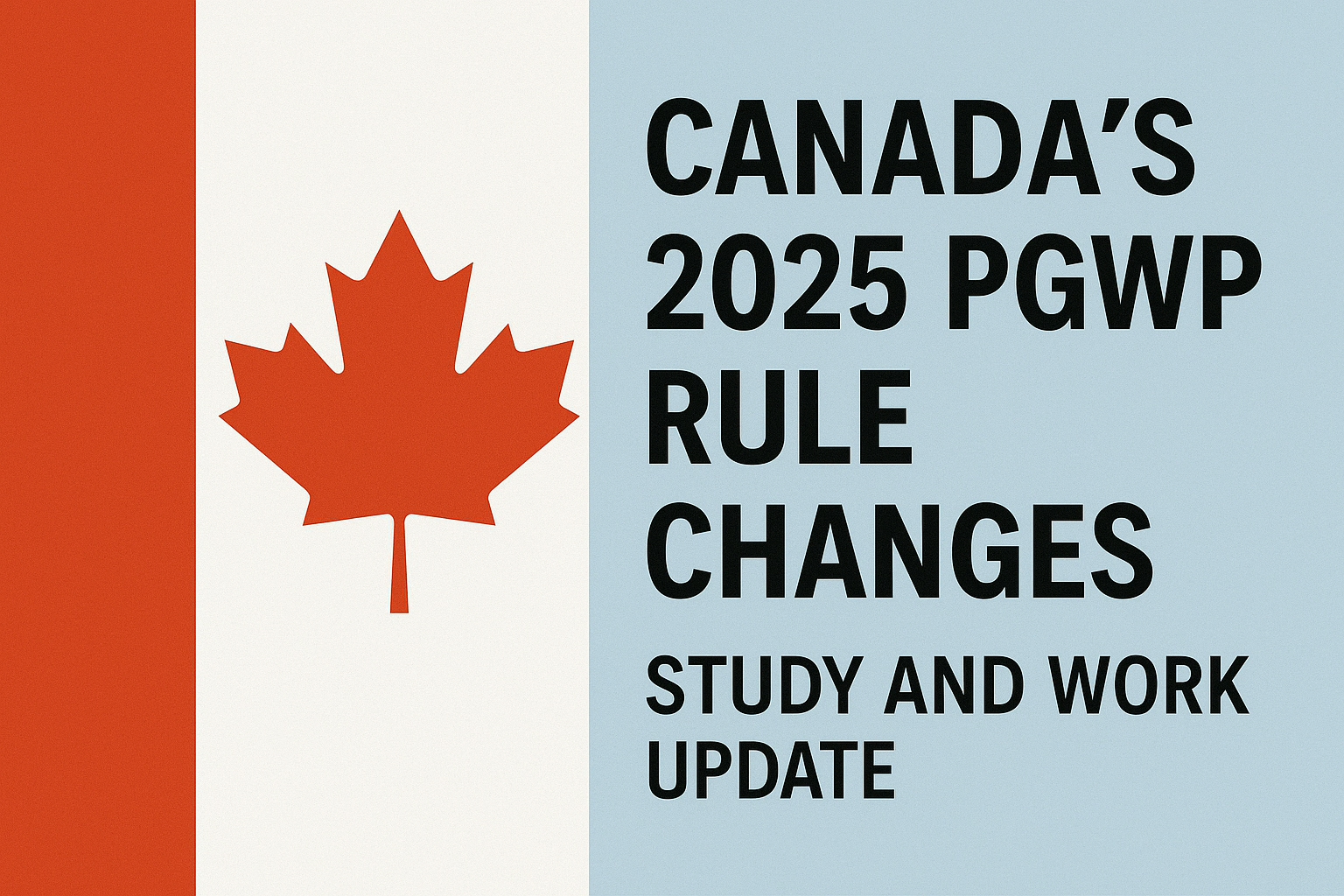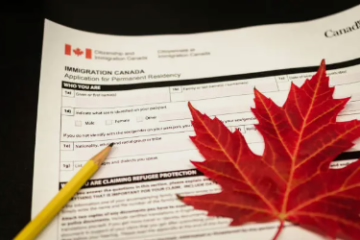Driving under the influence (DUI) is a serious criminal offense in Canada, carrying significant legal repercussions. For immigrants and those seeking to enter or remain in Canada, a DUI conviction can have profound implications on their immigration status. Understanding the intricacies of how DUI laws intersect with immigration regulations is crucial for anyone navigating the Canadian immigration system. This article delves into the implications of DUI for immigration status, examining the potential challenges and options available for those affected.
Table of contents
Understanding DUI Laws in Canada

In Canada, DUI offenses are governed by the Criminal Code. A DUI is defined as operating a motor vehicle while impaired by alcohol or drugs, or having a blood alcohol concentration (BAC) of 0.08% or higher. The legal framework around DUI is stringent, reflecting the country’s commitment to road safety. Canadian law enforcement agencies actively monitor and enforce these laws, employing roadside checkpoints, breathalyzer tests, and other measures to identify and apprehend impaired drivers.
The penalties for a DUI conviction in Canada can be severe, ranging from fines and license suspensions to imprisonment, depending on the circumstances of the offense. First-time offenders may face a minimum fine, while repeat offenders or those involved in accidents causing bodily harm or death can face more severe consequences, including lengthy prison sentences. Additionally, provinces and territories may impose their own administrative penalties, such as vehicle impoundment or mandatory education programs.
Canada’s zero-tolerance policy for DUI extends to individuals under the legal drinking age and commercial drivers, who are held to even stricter standards. For these groups, any detectable level of alcohol or drugs in the system can result in legal action. This rigorous legal approach underscores the importance of adhering to DUI laws to avoid criminal charges and the subsequent ramifications.
Understanding the legal framework surrounding DUI offenses in Canada is essential, particularly for immigrants and visitors. A DUI conviction is not merely a traffic violation; it is a criminal record that can have far-reaching effects, including on one’s immigration status. As such, it is imperative to be aware of the legal consequences and to take proactive measures to comply with Canadian laws.
How a DUI Affects Immigration Status
A DUI conviction can have significant implications for an individual’s immigration status in Canada. Under Canadian immigration law, a person with a criminal record may be deemed inadmissible, meaning they are not allowed to enter or remain in the country. A DUI is considered a criminal offense, and thus, it can render someone inadmissible to Canada, affecting both temporary and permanent immigration statuses.
For those already in Canada on a temporary visa, such as a visitor, student, or work permit holder, a DUI conviction could lead to the revocation of their visa. Immigration officials have the authority to remove individuals from Canada if they are deemed inadmissible due to criminal activity. This underscores the importance of maintaining a clean criminal record while residing in Canada, as a DUI can jeopardize one’s ability to stay in the country.
In addition to affecting current immigration status, a DUI can also impact future immigration applications. Individuals seeking to apply for permanent residency or citizenship may find their applications denied if they have a DUI conviction. The Canadian immigration system places a high value on good character and compliance with the law, and a criminal record can be a significant barrier to obtaining these statuses.
Understanding the potential immigration consequences of a DUI is crucial for anyone in Canada on a temporary or permanent basis. Those facing DUI charges should seek legal counsel to explore their options and understand the potential impact on their immigration status. Proactively addressing these issues can help mitigate the risks and ensure compliance with Canadian immigration laws.
Legal Consequences for DUI Offenders
The legal consequences of a DUI conviction in Canada are multifaceted and can vary based on the specifics of the offense. For first-time offenders, the Criminal Code mandates a minimum fine and a criminal record. This can also include a driving prohibition, which can affect daily life and employment opportunities. The severity of the penalties increases with subsequent offenses, with repeat offenders facing longer driving prohibitions, higher fines, and potential imprisonment.
In cases where a DUI offense results in bodily harm or death, the legal repercussions are significantly more severe. Such cases can lead to charges of impaired driving causing bodily harm or impaired driving causing death, carrying lengthy prison sentences. These charges reflect the serious nature of DUI offenses and the potential harm they can cause to others.
Additionally, provinces and territories have their own administrative penalties for DUI offenses. These can include immediate roadside suspensions, vehicle impoundment, mandatory alcohol education programs, and the installation of ignition interlock devices. These measures are designed to complement the federal criminal penalties and further discourage impaired driving.
The legal consequences of a DUI conviction extend beyond the immediate penalties. A criminal record can have lasting effects on an individual’s personal and professional life, impacting employment opportunities, travel, and, importantly, immigration status. Understanding these consequences is essential for those facing DUI charges, and seeking legal advice can help navigate the complexities of the Canadian legal system.
DUI and Permanent Residency Applications
A DUI conviction can pose significant challenges for individuals applying for permanent residency in Canada. Canadian immigration law requires applicants to demonstrate good character and compliance with the law. A criminal record, including a DUI conviction, can be a major obstacle in meeting these criteria, potentially leading to the refusal of a permanent residency application.
Applicants with a DUI conviction must address this issue in their application process. They may need to provide additional documentation or explanations to demonstrate rehabilitation and that they pose no risk to Canadian society. This can include evidence of completed educational programs, community service, or other efforts to mitigate the impact of the conviction.
In some cases, individuals with a DUI conviction may be eligible to apply for criminal rehabilitation, a process that allows them to overcome inadmissibility due to past criminal activity. Successful rehabilitation can clear the path for a permanent residency application, provided the individual meets all other eligibility criteria. This process requires a thorough understanding of Canadian immigration law and may benefit from the assistance of an immigration lawyer.
Despite the challenges, a DUI conviction does not automatically disqualify an individual from obtaining permanent residency in Canada. With the right approach and legal guidance, it is possible to address the issue and present a compelling case for residency. Understanding the potential impact of a DUI on a permanent residency application is crucial for anyone navigating the Canadian immigration system.
Impact on Work and Study Permits
For individuals in Canada on a work or study permit, a DUI conviction can have serious implications. Immigration officials have the authority to revoke permits if the holder is deemed inadmissible due to criminal activity. A DUI conviction can trigger this inadmissibility, jeopardizing one’s ability to work or study in Canada.
For those on a work permit, a DUI conviction can affect employment opportunities. Many employers conduct background checks, and a criminal record can be a significant barrier to securing or maintaining employment. Additionally, certain professions, particularly those involving driving or operating heavy machinery, may have zero-tolerance policies for DUI offenses, further limiting job prospects.
Similarly, students on study permits may face challenges if they are convicted of a DUI. Educational institutions may have policies regarding criminal behavior, and a DUI conviction could lead to disciplinary action or expulsion. Furthermore, the revocation of a study permit due to inadmissibility can disrupt educational plans and lead to removal from Canada.
It is essential for work and study permit holders to understand the potential impact of a DUI conviction on their status in Canada. Seeking legal advice and exploring options for addressing the conviction, such as applying for criminal rehabilitation, can help mitigate these risks and ensure compliance with Canadian immigration laws.
Important: Please note that the information here is not meant to be legal advice. Do not solely rely on the information given here; it is important that you consult with a lawyer regarding any legal advice. Pax Law Corp. is not responsible for any reliance on the contents of this blog post. Any faces posted on this blog post is totally AI generated and they are not intended to represent any person in the real world. Any similarities are completely coincidental.
Frequently Asked Questions
What is DUI in Canada?
DUI in Canada refers to driving under the influence of alcohol or drugs, or having a blood alcohol concentration (BAC) of 0.08% or higher.
What are the penalties for a DUI conviction in Canada?
Penalties for DUI in Canada can include fines, license suspensions, mandatory alcohol education programs, and imprisonment, depending on the offense.
How does a DUI affect my immigration status in Canada?
A DUI conviction can make you inadmissible to Canada, which may impact your ability to enter or remain in the country.
Can a DUI affect my work permit in Canada?
Yes, a DUI conviction can lead to the revocation of your work permit if you are deemed inadmissible due to criminal activity.
What happens if I am convicted of DUI while on a study permit?
A DUI conviction could result in the revocation of your study permit and may affect your ability to remain in Canada as a student.
Can a DUI conviction prevent me from applying for permanent residency in Canada?
Yes, a DUI conviction may be an obstacle in your permanent residency application, as it affects your eligibility for good character requirements.
What is the process for applying for criminal rehabilitation in Canada?
Criminal rehabilitation is a process where you can demonstrate that you have rehabilitated and no longer pose a risk, allowing you to overcome inadmissibility due to a DUI conviction.
Can I apply for permanent residency in Canada with a DUI conviction?
While a DUI conviction can complicate the process, you may still be able to apply for permanent residency if you demonstrate rehabilitation or meet other criteria.
What are the legal consequences of a DUI conviction in Canada?
Legal consequences for DUI convictions can include fines, driving prohibitions, and in severe cases, imprisonment, especially if the DUI caused bodily harm or death.
What happens if I cause harm or death while driving under the influence in Canada?
If you cause bodily harm or death while impaired, you may face severe charges, including longer prison sentences and greater penalties under Canadian law.
How long can I be banned from driving in Canada after a DUI conviction?
Driving prohibitions can vary in length depending on whether it’s your first offense or if you have prior convictions. Repeat offenders can face longer bans.
What is an ignition interlock device?
An ignition interlock device is a breathalyzer installed in your vehicle that prevents the car from starting if alcohol is detected in your breath.
Will a DUI affect my ability to travel to Canada?
A DUI conviction may make you inadmissible to Canada, which could prevent you from traveling there, depending on the circumstances of the conviction.
What is the zero-tolerance policy for commercial drivers in Canada?
Commercial drivers in Canada face stricter DUI laws, where even small amounts of alcohol or drugs can result in legal action or penalties.
Can a DUI conviction prevent me from entering Canada as a visitor?
A DUI conviction can result in inadmissibility to Canada, meaning you may not be allowed to enter as a visitor if you have a criminal record.
How can I prove rehabilitation after a DUI conviction?
Proving rehabilitation involves demonstrating that you have taken steps to address your past behavior, such as completing education programs or community service.
Can my DUI conviction affect my chances of obtaining Canadian citizenship?
Yes, a DUI conviction can affect your eligibility for citizenship as it may be viewed as a violation of Canadian law and good character standards.
What is the legal BAC limit in Canada for DUI?
The legal BAC limit in Canada is 0.08%. If your BAC is above this threshold, you can be charged with DUI.
What happens if I refuse a breathalyzer test in Canada?
Refusing a breathalyzer test in Canada can result in serious legal consequences, including fines, driving prohibitions, and potential criminal charges.
What is the difference between a DUI and impaired driving causing bodily harm?
A DUI is generally a charge for being impaired while driving, while impaired driving causing bodily harm involves an accident that causes injury to another person due to impairment.
Can a DUI conviction impact my job prospects in Canada?
Yes, a DUI conviction can negatively impact your job prospects, especially if your job requires a clean driving record or involves high-security clearance.
Can DUI affect my ability to apply for a work permit in Canada?
A DUI conviction can make you inadmissible to Canada, which can affect your eligibility for a work permit if you are found to be a criminal.
What are the consequences of a DUI for a first-time offender in Canada?
For first-time offenders, the consequences can include a fine, driving prohibition, and a criminal record. The penalties can increase for subsequent offenses.
Can I appeal my DUI conviction in Canada?
Yes, you can appeal a DUI conviction in Canada, but you will need legal advice to explore the chances of a successful appeal.
How do DUI laws apply to immigrants in Canada?
Immigrants in Canada can be affected by DUI laws, as a conviction can impact their immigration status and potential future applications for permanent residency or citizenship.
What should I do if I have a DUI conviction and want to apply for Canadian permanent residency?
If you have a DUI conviction, you may need to apply for criminal rehabilitation and demonstrate that you have addressed your criminal behavior before applying for permanent residency.
What steps can I take to prevent a DUI conviction from impacting my immigration status in Canada?
To prevent a DUI from affecting your immigration status, you should seek legal counsel, comply with all legal processes, and explore options like criminal rehabilitation if necessary.
How long does a DUI stay on your record in Canada?
A DUI conviction remains on your criminal record indefinitely unless it is expunged or you successfully complete a criminal rehabilitation process.
What should I do if I face DUI charges in Canada?
If you face DUI charges, it is crucial to seek legal advice, understand the charges, and explore your options for rehabilitation or reducing the impact on your immigration status.
Can a DUI charge be dismissed in Canada?
In some cases, a DUI charge can be dismissed, especially if there are procedural errors or lack of evidence. Legal representation is important in exploring these options.
What are the consequences of DUI for a commercial driver in Canada?
Commercial drivers face stricter penalties for DUI, including possible job loss, long-term driving prohibitions, and the potential to lose their commercial driving license.
What is the penalty for impaired driving causing death in Canada?
Impaired driving causing death can result in long prison sentences, as well as severe penalties, reflecting the seriousness of the offense.
Can DUI lead to deportation from Canada?
Yes, DUI can lead to deportation if the person is found to be inadmissible due to criminal activity or violation of immigration laws.
Can I get my Canadian visa back after a DUI conviction?
In some cases, you may be able to regain your Canadian visa by applying for criminal rehabilitation, demonstrating that you have addressed the issues leading to the conviction.
Discover more from Pax Law Corporation
Subscribe to get the latest posts sent to your email.



0 Comments